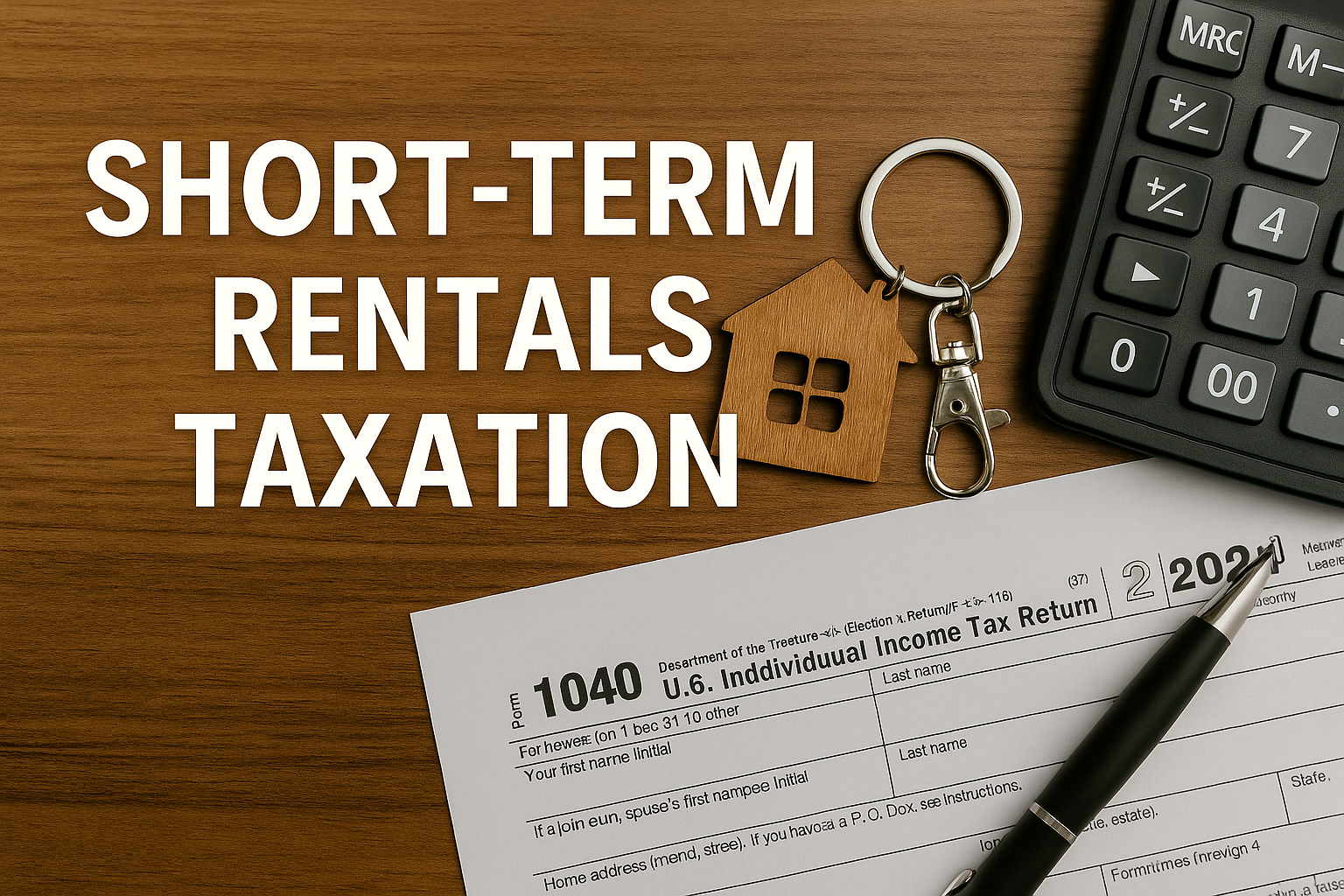Rental Property Income Tax Guide
-

Rental Income Overview
Rental property ownership offers valuable tax-saving opportunities, but navigating the rules is essential to maximize benefits and stay compliant. Whether you manage long-term rentals, short-term vacation properties, or are exploring cost segregation strategies to boost early-year deductions, understanding how the IRS treats rental income, expenses, and depreciation is key. This guide breaks down the essentials—from income reporting and passive activity loss limits to short-term rental exceptions and cost segregation best practices—helping you make smarter tax decisions and avoid common pitfalls.
-

Long-term Rental Taxation
Long-term residential rentals can offer steady income and valuable tax benefits, but they come with specific IRS reporting and compliance rules. Typically reported on Schedule E, long-term rental income is subject to passive activity loss rules, and expenses like mortgage interest, repairs, and depreciation are deductible. While most landlords aren’t subject to self-employment tax, offering hotel-like services may change that. Understanding when rental losses can offset other income—especially under the $25,000 active participation exception or real estate professional rules—is key to maximizing tax savings and avoiding costly errors.
-

Short-term Rental Taxation
Renting out property on a short-term basis—through platforms like Airbnb or VRBO—can generate extra income, but it also comes with specific tax obligations. Whether you’re renting a room for a weekend or managing a vacation rental year-round, how you report income and expenses depends on the number of rental days, your personal use, and the level of services provided. In some cases, income may be subject to self-employment tax or qualify for special rules like the 14-day exemption. Understanding the IRS guidelines on reporting, deducting expenses, and maintaining proper records is key to staying compliant and optimizing your tax position.
-

Cost Segregation Study for Rental Tax Deductions
Cost segregation studies are a powerful tax strategy for rental property owners looking to accelerate depreciation and boost cash flow. By breaking down a property into shorter-lived asset categories, investors can claim larger deductions earlier and defer taxes. While the potential benefits—including bonus depreciation, increased liquidity, and deductible study costs—can be significant, the approach comes with complexities and risks, such as depreciation recapture, audit exposure, and added compliance burdens. This guide outlines the key advantages, drawbacks, and rules to help property owners decide whether a cost segregation study is the right move for their investment strategy.
-

Grouping Rental Activities for Tax Purpose
Grouping rental real estate activities can be a valuable tax strategy, especially for real estate professionals seeking to convert passive losses into nonpassive income by meeting material participation thresholds. By electing to treat multiple rental properties as one activity, taxpayers can combine hours across properties and potentially unlock larger deductions. However, grouping isn’t always beneficial—it can limit future planning flexibility, restrict loss deductions upon partial sales, and is only allowed when ownership structures align. This guide explores when grouping makes sense and when it may work against your tax goals.
